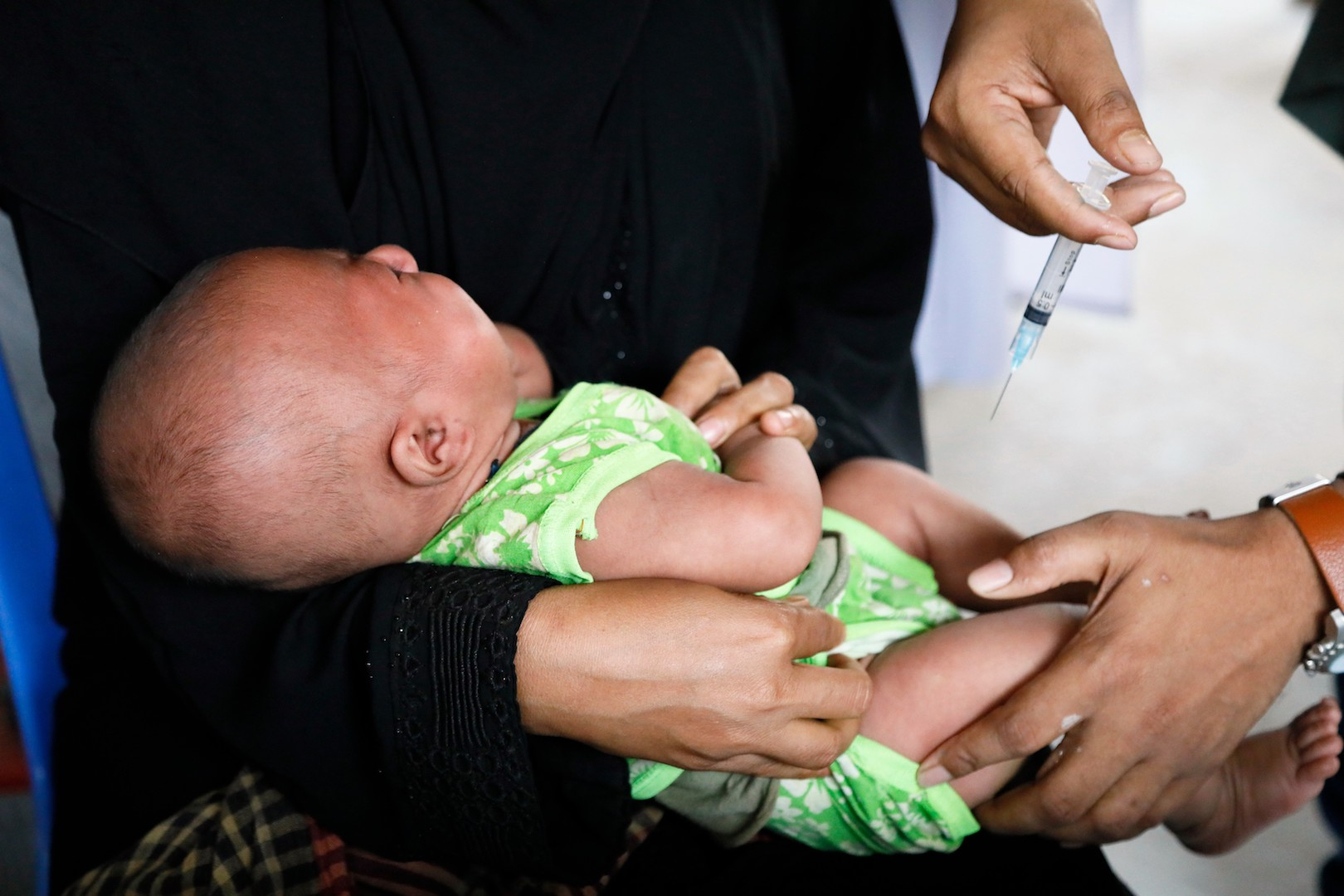Record number of children vaccinated in 2017
2018-07-18
© UNICEF/UN0218878/Krishan
As over 19 million children miss out on vaccinations, UNICEF and WHO call for concerted efforts to reach all children
NEW YORK/HONG KONG, 17 July 2018: A record 123 million children were immunized globally in 2017, according to data released today by the World Health Organization and UNICEF.The data shows that:
- 9 out of every 10 children received at least one dose of diphtheria-tetanus-pertussis (DTP) vaccine in 2017, gaining protection against these deadly diseases.
- An additional 4.6 million infants were vaccinated globally in 2017 compared to 2010, due to global population growth.
- 167 countries included a second dose of measles vaccine as part of their routine vaccination schedule and 162 countries now use rubella vaccines. As a result, global coverage against measles and rubella increased from 35 per cent in 2010 to 52 per cent.
- The human papillomavirus (HPV) vaccine was introduced in 79 countries to help protect women against cervical cancer.
- Newly available vaccines are being added as part of the life-saving vaccination package – such as those to protect against meningitis, malaria and even Ebola.
As populations grow, more countries need to increase their investments in immunization programmes. To reach all children with much-needed vaccines, the world will need to vaccinate an estimated 20 million additional children every year with three doses of the diphtheria-tetanus-pertussis vaccine (DTP3); 45 million with a second dose of measles vaccine; and 76 million children with 3 doses of pneumococcal conjugate vaccine.
In support of these efforts, WHO and UNICEF are working to expand access to immunization by:
- Strengthening the quality, availability and use of vaccine coverage data.
- Better targeting of resources.
- Planning actions at sub-national levels and
- Ensuring that vulnerable people can access vaccination services.
Donate now to support UNICEF's programmes worldwide










